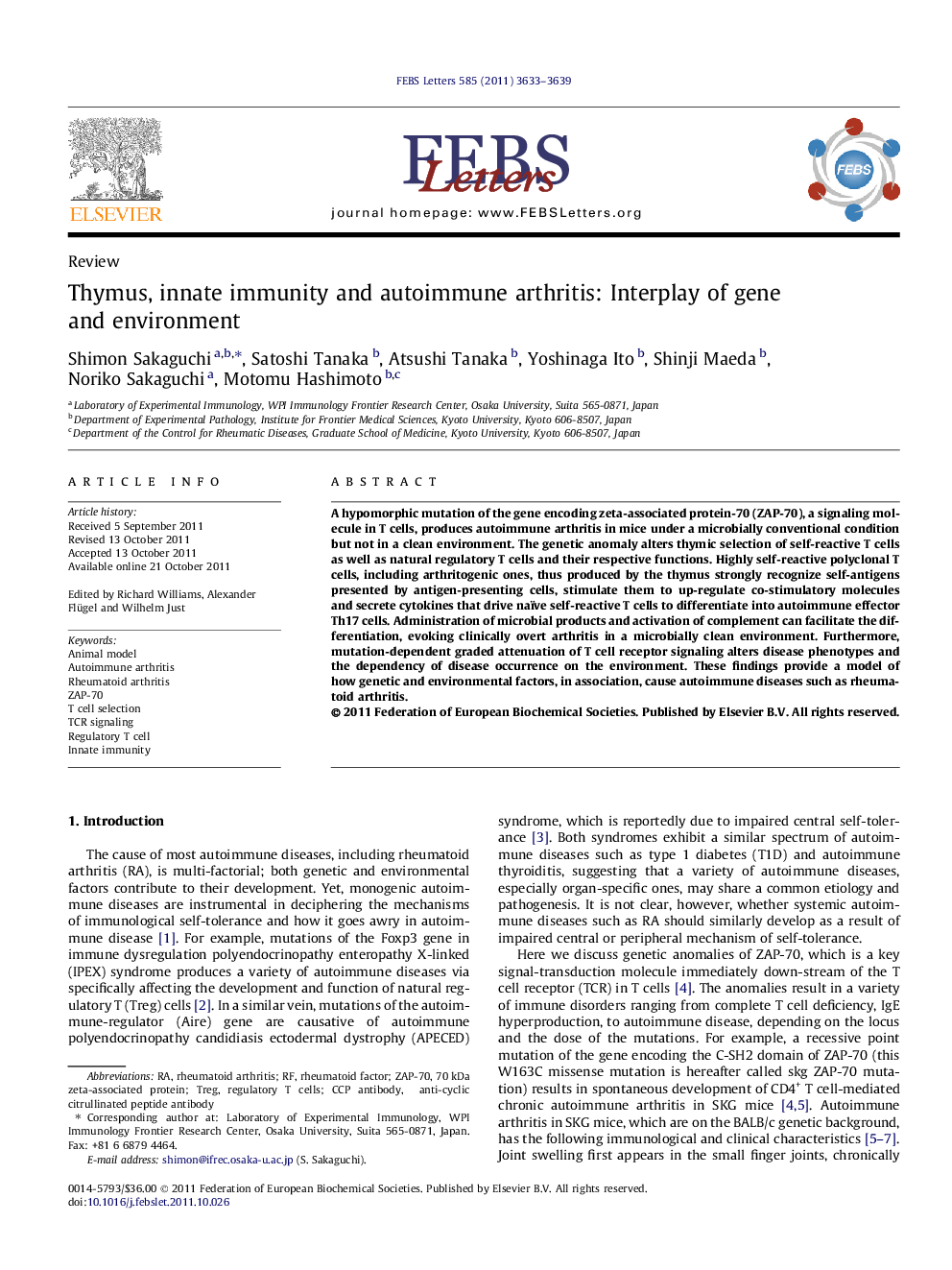| Article ID | Journal | Published Year | Pages | File Type |
|---|---|---|---|---|
| 10871770 | FEBS Letters | 2011 | 7 Pages |
Abstract
A hypomorphic mutation of the gene encoding zeta-associated protein-70 (ZAP-70), a signaling molecule in T cells, produces autoimmune arthritis in mice under a microbially conventional condition but not in a clean environment. The genetic anomaly alters thymic selection of self-reactive T cells as well as natural regulatory T cells and their respective functions. Highly self-reactive polyclonal T cells, including arthritogenic ones, thus produced by the thymus strongly recognize self-antigens presented by antigen-presenting cells, stimulate them to up-regulate co-stimulatory molecules and secrete cytokines that drive naïve self-reactive T cells to differentiate into autoimmune effector Th17 cells. Administration of microbial products and activation of complement can facilitate the differentiation, evoking clinically overt arthritis in a microbially clean environment. Furthermore, mutation-dependent graded attenuation of T cell receptor signaling alters disease phenotypes and the dependency of disease occurrence on the environment. These findings provide a model of how genetic and environmental factors, in association, cause autoimmune diseases such as rheumatoid arthritis.
Keywords
Related Topics
Life Sciences
Agricultural and Biological Sciences
Plant Science
Authors
Shimon Sakaguchi, Satoshi Tanaka, Atsushi Tanaka, Yoshinaga Ito, Shinji Maeda, Noriko Sakaguchi, Motomu Hashimoto,
